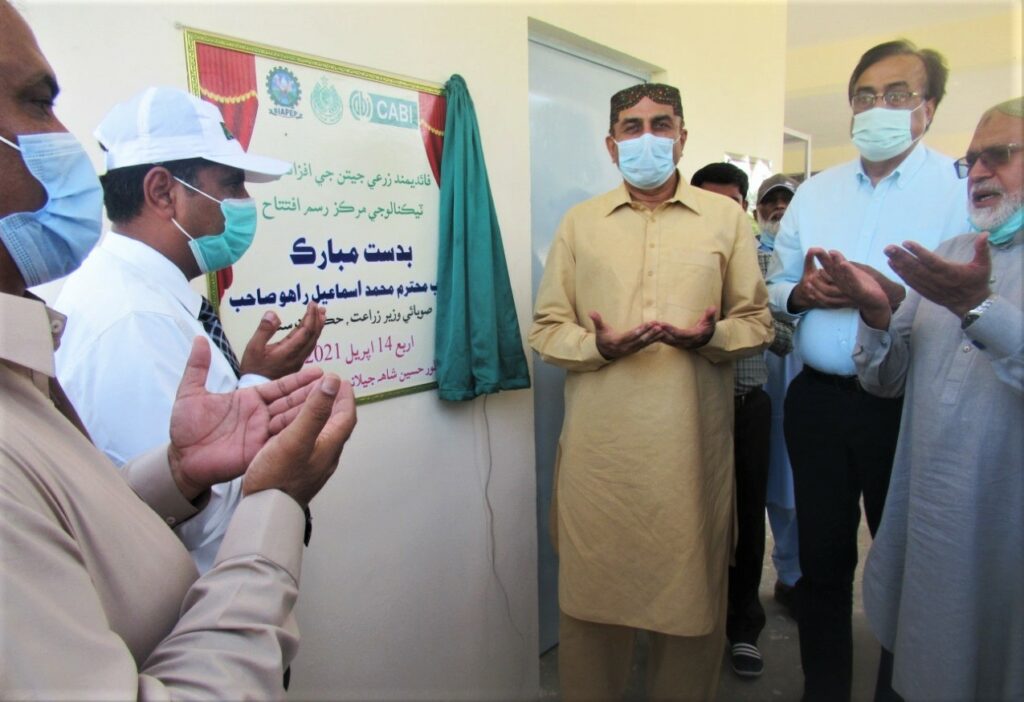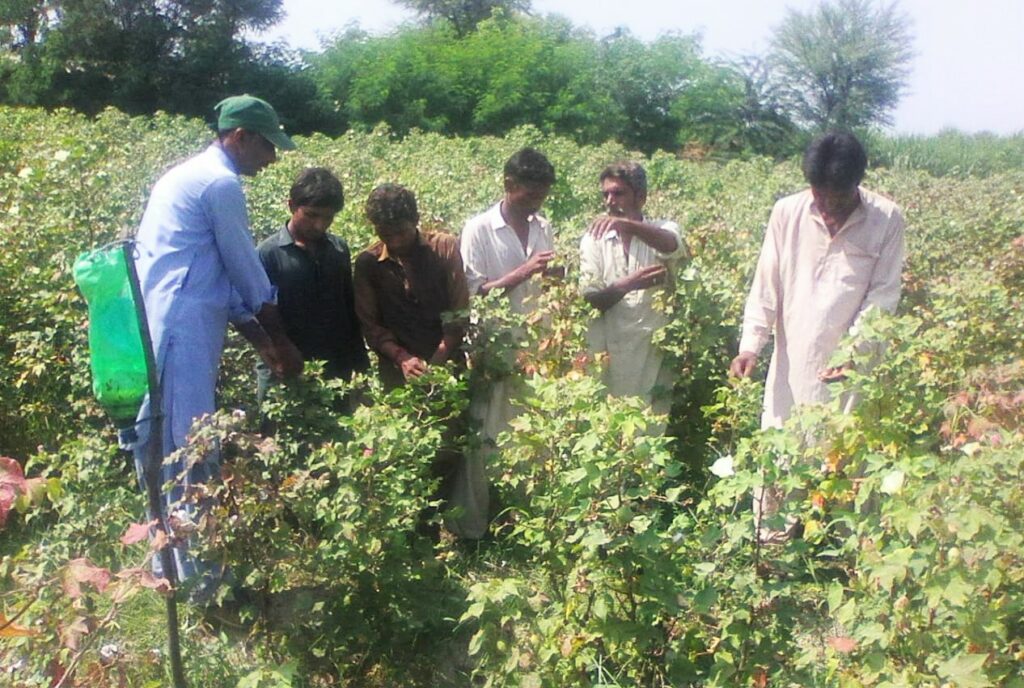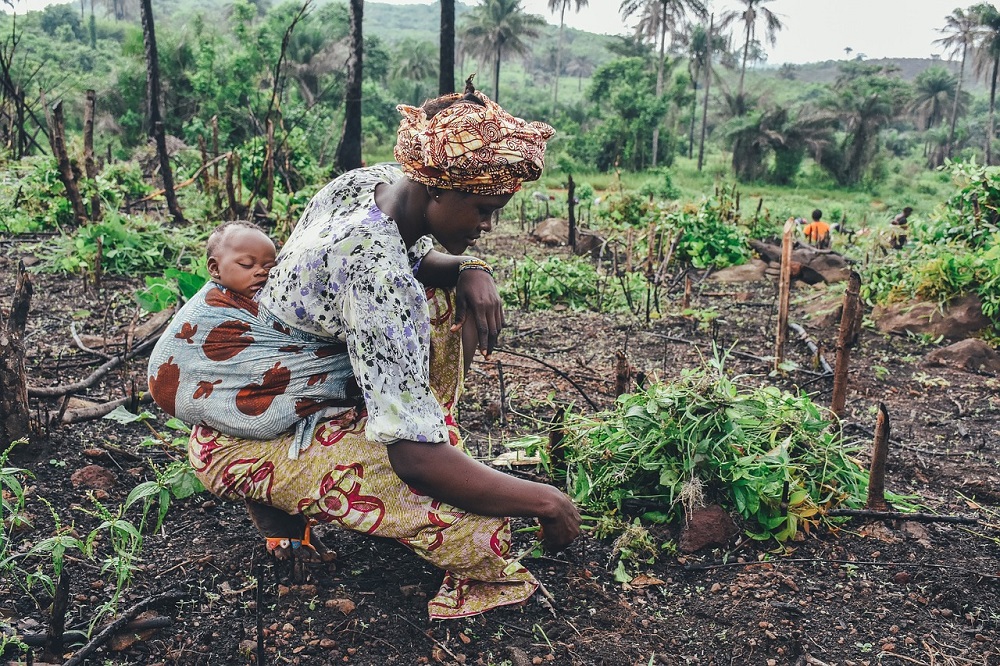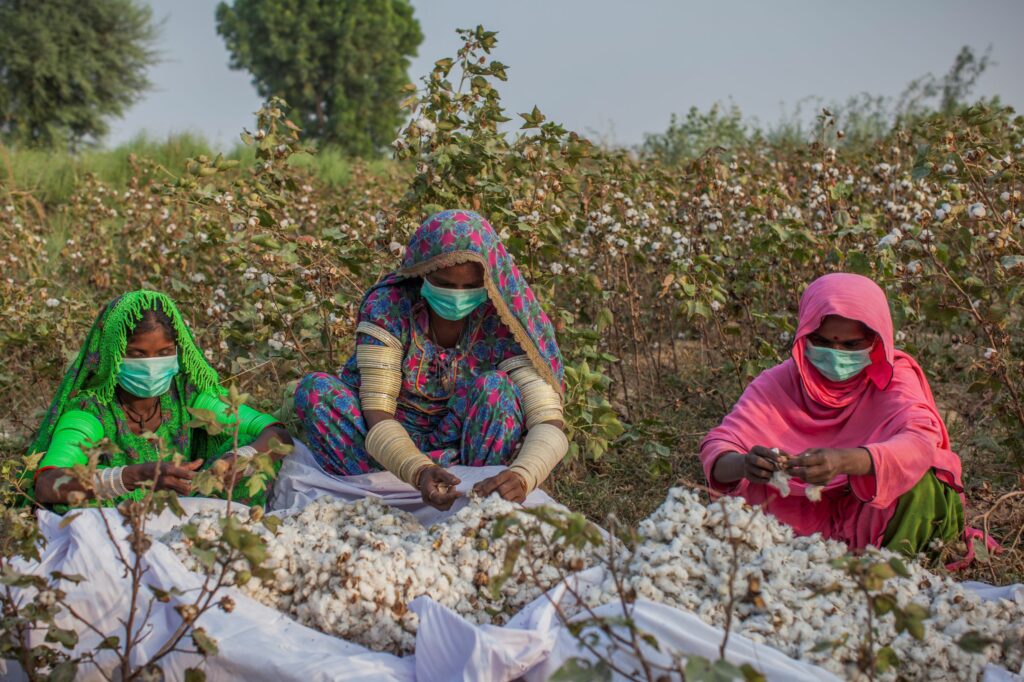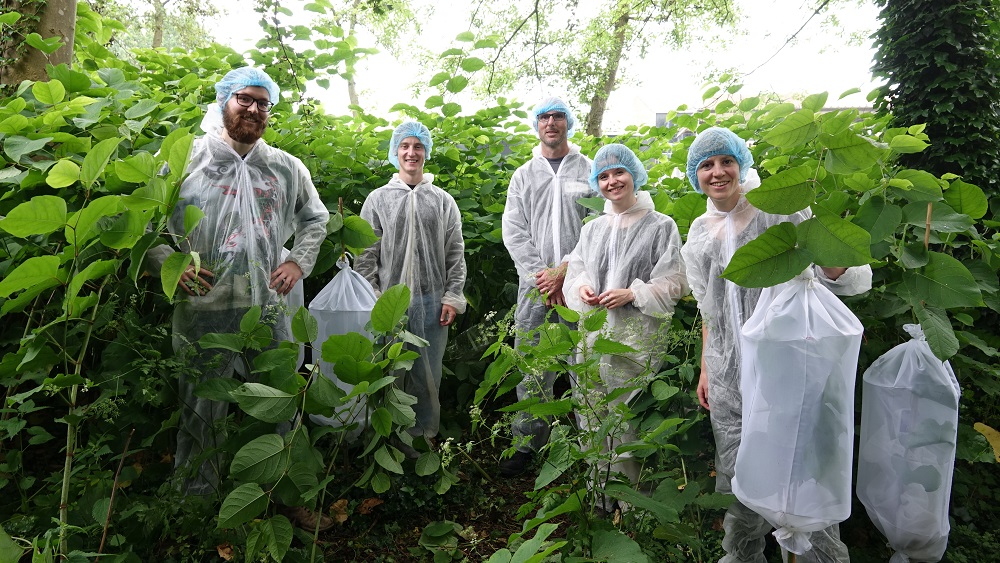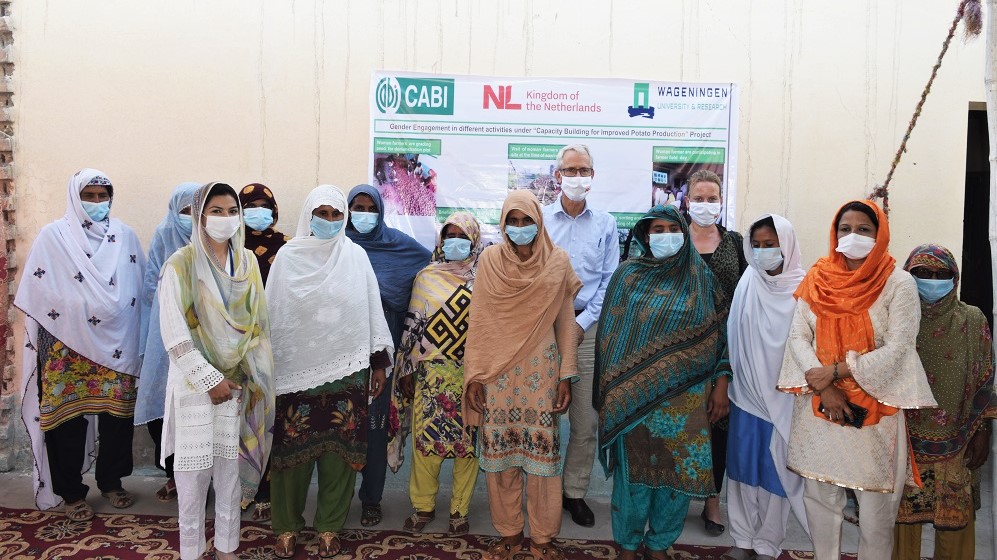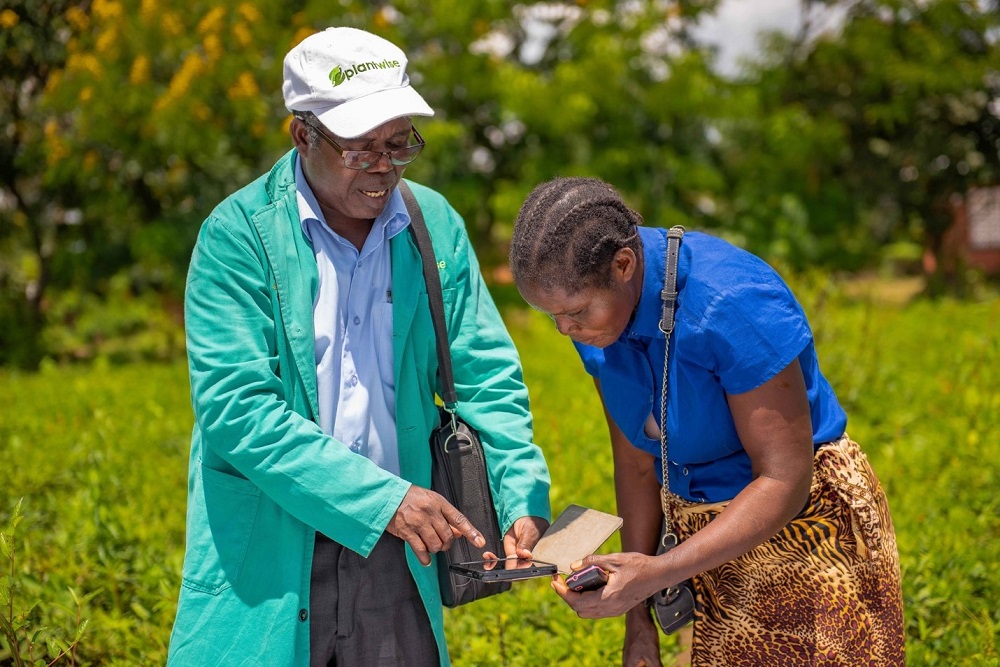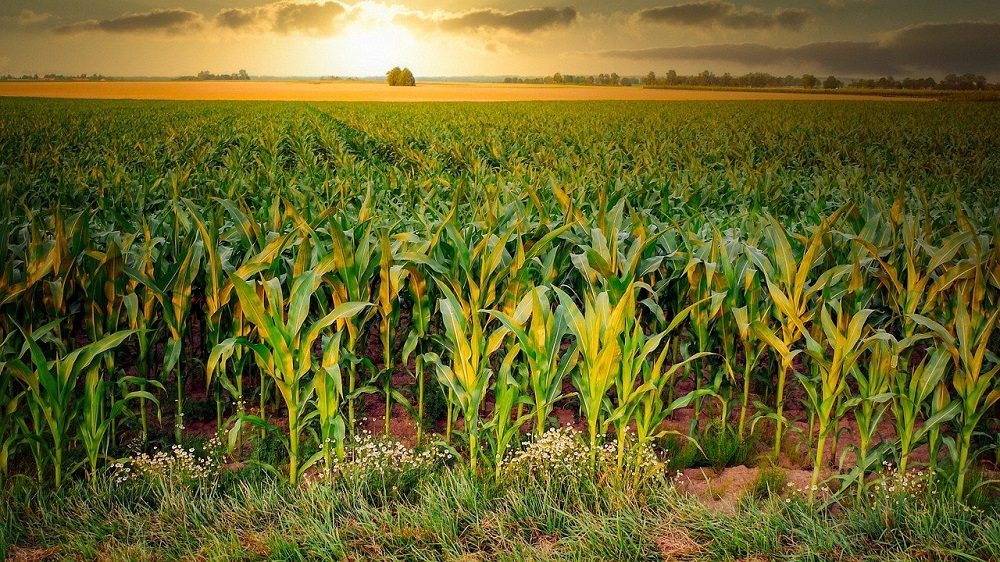CABI Blog
You are here: CABI Blog
Agricultural Minister endorses establishment of innovative biological control at farms in Sindh province of Pakistan
July 21, 2021
Ashfaque ali Dhaunroo
1 comment
The Agricultural Minister for Sindh province in Pakistan, Mr Muhammad Ismail Rahoo, has officially endorsed a Memorandum of Understanding (MoU) which will see the establishment of Natural Enemy Field Reservoirs (NEFRs) to fight pests of fruits, vegetables and other economic crops – including cotton and rice.
Farmers in Pakistan use pheromone capsules to fight back against cotton crop pest the pink bollworm
July 14, 2021
Allah Bux, Ghulam Nabi, Mushtaque Ali
1 comment
Cotton is Pakistan’s largest industrial sector but is impacted by many pests. The pink bollworm (Pectinophora gossypiella) is considered its worst enemy as it affects the quality of the lint and, ultimately, loss of the crop.
Measuring the value of improving data access and governance in Gates Foundation programmes and projects
July 7, 2021
Ruthie Musker
1 comment
The Bill & Melinda Gates Foundation addresses many important global issues. One of the foundation’s core areas of focus is data, including data access and data sharing in agriculture. Agricultural data is important as it can help to address issues of international concern such as reducing hunger and poverty as called for by the Sustainable…
Organic cotton in Pakistan: policy analysis and recommendations
July 6, 2021
Babar Latif Baloch, Toby Penrhys-Evans, Umair Safdar
1 comment
As the fourth largest cotton producer worldwide, cotton is an integral part of Pakistan’s economy contributing 9.5% of its gross domestic and serving as a core livelihood for 15 million cotton workers. In addition to bringing US$3.5 billion as foreign currency each year to the country, it provides crucial income to cotton-producing households, accounting for…
Biological control for Japanese knotweed comes into sharp focus during second release of psyllid
June 30, 2021
Wayne Coles
2 comments
Research to find a suitable and safe biological control to fight the scourge of Japanese knotweed is stepping up a gear in the Netherlands after the second release of a psyllid – Aphalara itadori – and our very own Dr Janny Vos, Partnerships Development Director, was on hand with camera for this picture special.
Dutch Ambassador to Pakistan meets small-scale potato farmers for update on potato capacity-building project
June 29, 2021
Hafiz ur Rehman, Maila al Saba Shah, Umair Safdar, Yasar Saleem Khan
No Comments
Potato is an important vegetable crop of Pakistan with 88% of production linked to Punjab state – of which 70% comes from within four districts; Okara, Sahiwal, Pakpattan and Kasur in Pakistan.
Data and farming innovations aid crop pest risk prediction and management in low income countries
June 21, 2021
David Onyango
No Comments
Novel Solutions in the form of pest risk alert systems now present a unique opportunity for low income countries to better predict, prevent and manage pests that are estimated to cause between 20%-40% crop losses annually, threatening the food security of millions. This has been highlighted in a United Nations Food Systems Summit (UNFSS) 2021…
Benefits of the Global Burden of Crop Loss project highlighted at DevRes2021 conference
June 21, 2021
Wayne Coles
No Comments
CABI’s Dr Laura Doughty has highlighted the importance of the Global Burden of Crop Loss (GBCL) initiative at this year’s DevRes2021 conference whose theme was ‘Advancing Sustainable Transformation.’
Searching made easy with CAB Thesaurus
June 16, 2021
Debbie Chessell
No Comments
Ever known exactly what you want to find, but not quite getting the results you desire? As an organization with over 100 years of scientific research experience behind us, we know your pain. That’s why we created CAB Thesaurus, our digital indexing tool designed to help researchers quickly navigate through millions of subjects to find…
3 fast ways to find super-specialized research
June 10, 2021
Debbie Chessell
No Comments
We all know that essay deadline dread; you’ve got a rough idea, no clue where to find the right research, and less and less time to get everything (citations included) sorted. Never fear, CABI’s here! In this blog, we share our 3 top tips for finding super-specialized research, super-fast. Ditch Google Scholar, databases are your…
Subscribe to blog
DISCLAIMER
Views expressed in contributions do not necessarily reflect official CABI positions.
Archives
Categories
- Agriculture and International Development
- Veterinary and Animal Sciences
- Climate change and biodiversity
- Publishing
- Value chains and trade
- Crop health
- Environmental Sciences
- Human Sciences
- Tourism, Hospitality and Leisure
- Food and nutrition security
- Plant Sciences
- Gender and youth
- Digital development
- Development communication and extension
- Economic development
- Invasive species
- CABI Bioservices
- One Health


